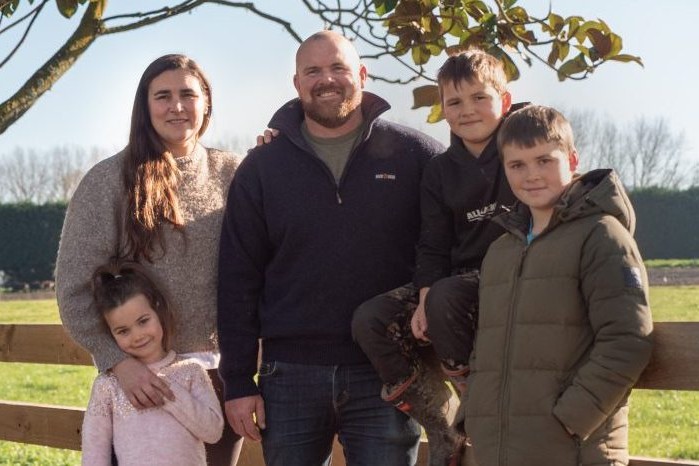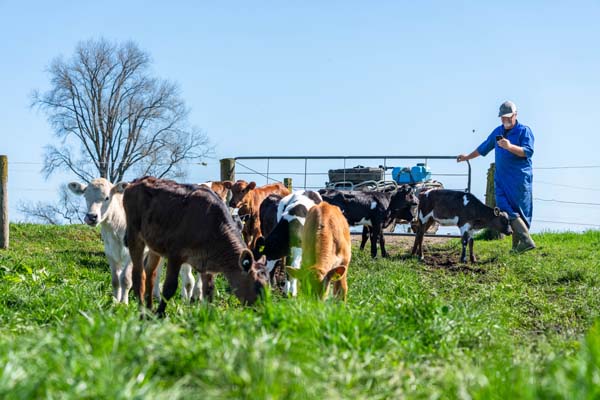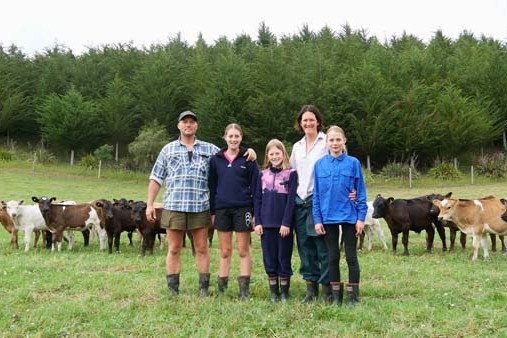Now that foot-and-mouth disease (FMD) is only a holiday to Bali away, it’s time to remind ourselves that biosecurity starts at our borders but ends on our farms.
Mostly gone are foot troughs at gates from three years ago when Mycoplasma bovis was spreading fast but that doesn’t mean we should be any less vigilant.
Yes, FMD will completely ignore your footbath, as it can be carried on the wind, but that footbath will still stop a whole lot of other unwanted diseases affecting your cattle.
We are a country that takes our animals to the food and not the food to the animals so we are more susceptible to disease than others because our animals, especially our dairy cows, can travel the length of the country, or at least a couple of times around a region, in their lifetimes.
So you should the know the “must-never-dos”, not just for your own farm, but for everyone else’s.
No one wants to be “that farm” which alerted the nation that a disease we were once free of we now have.
But if you ignore a sick animal and do not get advice, your farm will eventually be found out to be ground zero and the repercussions will be worse. Your failure to act quickly will have made an isolated case into an infected region and possibly the whole country.
So if one of your animals is sick and you are not sure about it, ring your vet immediately. Do not worry what time of the day or night it is.
If your vet doesn’t pick up the phone ring the Ministry for Primary Industries pest and disease “hotline” (it’s what they’re calling it) 0800 80 99 66. It’s on their website.
Within four hours there will be someone there checking your animals and samples taken will have a 24-hour turn around or faster in the lab.
So, never, ever, ever (can I say this enough) ever feed raw meat to animals such as pigs. Any raw meat, or products that have been in contact with raw meat, must be cooked for at least an hour at 100C first.
Never ever bring home footwear, wet weather gear or animal health equipment that has been worn or used on a farm in another country without cleaning and disinfecting it thoroughly before entering NZ. Never ever shift cattle or deer without doing all the NAIT stuff and if you’re leaving it up to your stock agent or saleyards make sure they do the job as they should.
Do everything possible to stop your stock licking, sniffing and grooming other people’s stock. They need to keep their noses and their tongues to themselves.
And that includes licking any of the wildlife on your farm.
Have a possum control programme, shoot as soon as possible any wild deer that have strayed in and those with eartags send them quickly packing back to their owners.
Keep wild pigs, rabbits, hares, geese and duck numbers down. These guys not only eat your grass but spread a whole host of diseases.
Fenced riparian strips are proving the perfect habitat for some of these pests, including rats, so install some automatic traps when you plant the flaxes and trees.
Make sure all your cattle vaccinations are up to date. Your cows will never be anti-vaxers. They know and appreciate their jabs because they stop them dying of Tetanus and blackleg and a whole host of other nasties that once in our cattle can increase their numbers in the soil and affect more animals.
Drench at the right times with the right drenches to stop worm burdens building up. Rotate stock through paddocks especially calves which are more susceptible to parasites. Don’t raise calves in the same areas every year.
Calf grain feeders especially should be moved every day in paddocks.
Rest paddocks and let sunshine and nature do what they do best.
Don’t invite the boys on to your property to have sex with your girls until they’ve had a health check first.
And don’t invite your friends or family with their dogs to roam your paddocks. This is a working environment and no place for a poodle, or a spoodle or anything else that is going to poo.
So keep gumboots used by staff onfarm, and any entering worn by vets, bankers, AI technicians and others going through your footbath.
Have warm water and soap available for hand washing and keeping things clean.
If those coming on to your farm are bringing with them their dirty gumboots and gear tell them to clean up their act or you’re getting someone else.
Check second-hand gear and machinery coming onfarm has been thoroughly disinfected before it’s used.
Make sure all feed is certified, all medicines have labels, all semen used is from a well-known breeding company which has used the correct import protocols. Don’t ever be tempted to use something cheap that you’re not sure where it came from.
But most importantly, always keep looking at your stock. Are they well? Are they happy? Are they walking without pain? Are they all growing as they should and not losing weight?
Are they acting like cattle or is something wrong?
And that includes all your stock, not just the milking cows you see twice a day. Don’t leave calves forgotten about or breeding bulls which are out of the way until mating starts. Visually check all your stock regularly.
Don’t yard or transport stock, especially young stock, in bad weather if you can help it as the extra stress of dealing with rain and wind can make them susceptible to illness.
Mycoplasma bovis and Covid has taught our government a few things about how we farm and how to control the spread of disease and although there might not be the 1pm briefing if we get FMD, do expect regional shutdowns, police checkpoints and a whole host of other measures.
Having FMD in Indonesia has not raised the threat level to NZ, but it has made those in Wellington think about it a bit more.
They say they’re ready. Hopefully we won’t have to find out.




